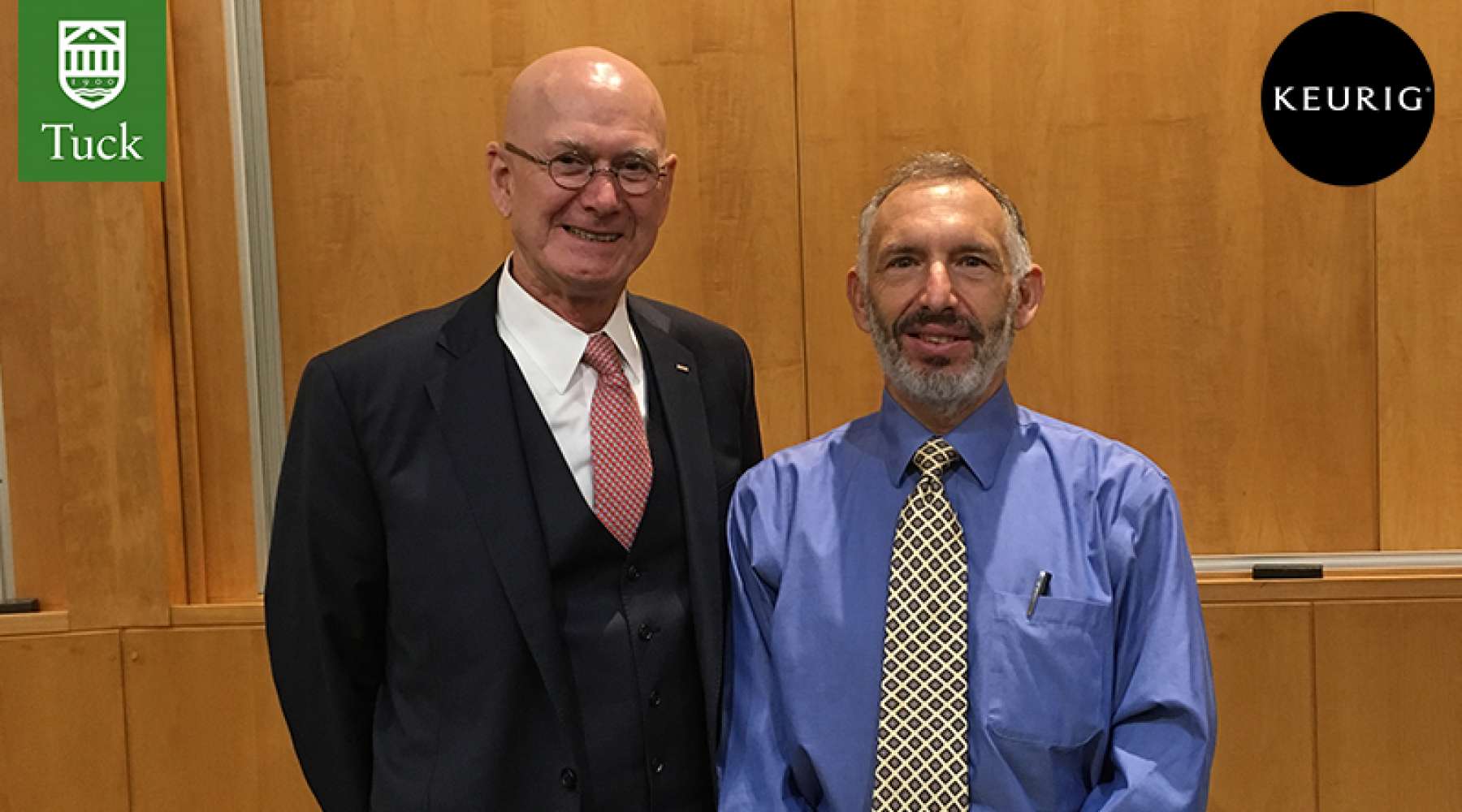
By Danielle Musa T’17, a fellow with the Center for Business, Government & Society
When you think of a powerful brand like Keurig, it’s easy to forget the company is less than 25 years old. How does a company grow from an idea, to a viable venture, to a private company valued at $14 billion? Case studies are a great way to learn about the pitfalls and opportunities along this path. An even more powerful learning experience is intimate discussions with the leaders of the journey.
In early October, I was fortunate to join a discussion with Dick Sweeney, co-founder of Keurig and current VP of contract manufacturing and quality assurance, and Larry Kernan, angel investor and former chairman. The discussion was co-sponsored by two Tuck research centers: the Center for Business, Government & Society and the Center for Private Equity and Entrepreneurship. An amazing part of the Tuck experience is that these events can bring together a wide range of perspectives and backgrounds, while cultivating intimate discussions.
“Having lunch” with Mr. Sweeney and Mr. Kernan complemented my classroom discussion on Keurig. The lunch conversation brought to life the interpersonal dilemmas and leadership characteristics that were central to Keurig’s story. For example, a major theme from my class discussion was the importance of a high level of trust in business partnerships. Speaking with the Keurig leaders directly, we explored some of the ways trust can be formed (and damaged), especially in the early stages of a partnership, when there have been only a limited number of interactions. I felt an immediate “aha” when the executives suggested that we look for commitment to the project vision and “shared values” between the companies. For a new idea, like Keurig, to grow and succeed, managers must respect the role and importance of many stakeholders.
This experience is just one of many that allows for diverse, intimate discussions and expands my leadership frameworks. I feel incredibly fortunate for the outstanding teaching I receive within the classroom and for Tuck’s commitment to continue leadership conversations outside the classroom as well.
The Center for Business, Government & Society is focused on meeting the evolving complexities facing business leaders in today’s global economy. In the context of globalization and technological advancement, business success increasingly depends on reconciling the interests of its immediate stakeholders with the broader, deeply intertwined interests of both governments and society. Business leaders adept at navigating these many interests will be better equipped and empowered to help build a more sustainable global economy.